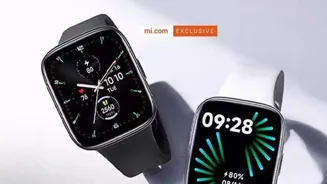Unraveling the Impact of Technology on Health: Striking a Balance. Dive deeper into how tech affects us physically & mentally
In today's fast-paced world, technology has become an indispensable part of
our lives. From smartphones to laptops, we are constantly surrounded by gadgets that offer convenience, connectivity, and endless possibilities.
However, this increased reliance on technology has also raised concerns about its impact on our health and well-being. While technology offers numerous benefits, it is crucial to find a balance and be mindful of its potential downsides.
We must remember that, as useful as these gadgets are, our physical and mental health should always be our priority.
Technology leads to sedentary behavior, impacting health negatively
One of the most significant effects of technology on our health is the increase in sedentary behavior. With the rise of remote work, online entertainment, and food delivery apps, many of us spend a large portion of our day sitting down.
This lack of physical activity can lead to a range of health problems, including obesity, cardiovascular disease, and type 2 diabetes. Studies have also shown that prolonged sitting can increase the risk of certain cancers and mental health issues like anxiety and depression.
Therefore, it's important to take regular breaks, engage in physical exercise, and limit screen time that is not work related. It's all about keeping our bodies active.
Impact of technology on mental health, focus on dangers and solutions
Another area of concern is the impact of technology on our mental health. The constant exposure to social media, news updates, and online content can be overwhelming and lead to feelings of anxiety, stress, and loneliness.

Cyberbullying and online harassment are also serious issues that can have a detrimental effect on mental well-being, particularly among young people and teenagers. In addition, the blue light emitted by screens can disrupt our sleep patterns, leading to insomnia and other sleep disorders.
Therefore, it's crucial to practice digital detoxing, set boundaries for screen time, and seek support from mental health professionals if needed. Remember to take a break as well and recharge your mind..
Overuse of technology leads to musculoskeletal problems, prevent with posture and breaks
Furthermore, the overuse of technology can also contribute to musculoskeletal problems. Spending long hours typing on a keyboard, scrolling on a smartphone, or gaming can lead to conditions like carpal tunnel syndrome, tennis elbow, and neck pain.
These conditions can be painful and debilitating, affecting our ability to perform everyday tasks. Therefore, it's important to maintain proper posture, take regular breaks to stretch and move around, and invest in ergonomic equipment to support our bodies.
It is all about prevention, and a good posture can make huge impact.
Technology improves healthcare accessibility and promotes health awareness
However, it's important to note that technology also offers numerous health benefits. Telemedicine, for example, has made healthcare more accessible and convenient, particularly for people in remote areas like villages who may not have easy access to medical facilities.
Wearable devices and health apps can help us track our fitness levels, monitor our sleep patterns, and manage chronic conditions. Technology can also be used to promote health education and awareness, empowering people to make informed decisions about their health.
Medical field benefits from harmful aspects
Thus, we have to remember that, as harmful as it can be, this offers a huge advantage to the medical field.
Finding balance in technology use is key for well-being
Finding balance is the key to harnessing the benefits of technology while mitigating its potential drawbacks. It's about being mindful of our usage, setting boundaries, and prioritizing our physical and mental well-being.

Here are some practical tips: Set hard time limits for non work related gadget use, for example 1 hours per day max and more on the weekends. Schedule regular "digital detox" periods, such as weekends or holidays, to disconnect from technology and reconnect with ourselves and our surroundings.
Prioritize physical activity, such as walking, jogging, yoga, or dancing, to counteract the effects of a sedentary lifestyle. Create a healthy sleep environment by dimming the lights, avoiding screens before bed, and establishing a regular sleep schedule.
Practice mindfulness and meditation to manage stress and anxiety and take deeper breaths. Take regular breaks from work and computer if you're into IT.
Tech's impact on health is multifaceted; balance key to well-being
In conclusion, technology has a complex and multifaceted impact on our health. While it offers numerous benefits, it's crucial to be aware of its potential downsides and take steps to mitigate them.
By finding a balance, setting boundaries, and prioritizing our physical and mental well-being, we can harness the power of technology to improve our lives without compromising our health. After all health is wealth, and it is important to value this so that we can live longer with our families.













